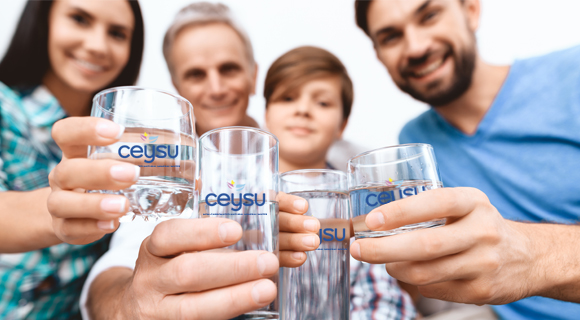
Parents, whether they are doing it for the first time or have done it before, are constantly worried about the wellbeing and safety of their child. They take all required precautions and do everything possible to maintain good health.
Alkaline water is the most widely used option because many experts think it is excellent for kids. Water is essential for life, as everyone is aware; even newborns require it to survive. We want to provide them the greatest life possible as parents, but before you think alkaline water is safe for your kids, you need know the facts. Without further ado, let’s examine the health advantages of alkaline water for children and the concerns associated with consuming it.
Health Benefits of alkaline Water for your Children
Alkaline water is becoming more and more popular among health-conscious people since it provides your infant with a number of health advantages that should help to enhance overall wellness. For your kids, it is a lot safer option than tap water.
Let’s examine each of these advantages of consuming alkaline water:
Your children’s needs for water are met by alkaline water, which is simply fresh water that has been concentrated into tiny groups and is rich in minerals that are quickly absorbed by the cells. In young toddlers, alkaline water also lessens acid reflux. Your body’s pH level can be managed, which enhances blood circulation. more moisturising than regular tap water. Alkaline water aids in the elimination of free radicals since it is packed with antioxidants. By helping to eliminate bacteria, alkaline water can also shield your kids from diseases. Alkaline water also helps to boost the immune system.
What’s wrong with typical tap water that hasn’t been filtered?
Drinking water goes a long way because the pipes in our tap water system travel a considerable way, despite the fact that tap water is frequently tested. This implies that before it reaches our taps, water can always pick up a variety of contaminants, including rust flakes and other impurities.
Older pipes that were composed of metals like lead, which can start to corrode and release particles into the water, may have been used. It can be challenging to determine whether the tap water includes contaminants such heavy metals or chemicals because the pipes are not updated or renewed very frequently. In the past, there have been instances where testing has failed or an issue has been found.
Tap water may have an odd flavour or odour due to chemicals like chlorine and fluoride, which may discourage kids from drinking it in favour of less healthful soft drinks and sugary beverages, making you feel guilty as a parent.
According to several research, the concentrations of these additional chemicals in our water are too high to be safe. The American Council on Environmental Quality states that “People who drink chlorinated water have a 93 percent more risk of developing cancer than those whose water does not contain chlorine.”
What is alkaline water, exactly?
Without being overly “scientific,” alkaline water is ionised, giving it a PH (potential of hydrogen) higher than 7. Tap water typically has a total pH of 7.
How acidic or basic something is is determined by its position on the pH scale, which ranges from 0 to 14. Acidity increases from 0 to 7, with 7 being the most acidic. A PH of 7 is normally considered neutral and in balance, whereas a PH of 7 or higher is considered alkaline.
As it passes through the soil and over rocks, water can naturally turn alkaline by absorbing minerals like magnesium and calcium. However, it gradually loses its alkaline pH as it is handled in our plants and moved through our chemical systems and pipelines. It resembles the way you feel exhausted after a long day of work.
Why is alkaline water beneficial to us and our family?
The kidneys work incredibly hard to maintain the body’s pH equilibrium, which is 7.4, which is slightly alkaline.
However, because we eat a lot of meat and sweet, salty, processed foods, the “normal” Western diet is typically rather acidic, making it more difficult for our bodies to maintain an alkaline condition.
Alkaline water often has a pH between 8 and 10, making it simpler for our bodies to balance and control the pH when we drink it. We won’t have to worry if we “accidentally” consume that extra chocolate chip cookie if we support our body in this way!
Creative ways to make hydration fun for kids
Buy reusable, colourful water bottles with a built-in fruit container for colourful infusions.
To give the water a rich flavour, let the youngsters pick their favourite fruit.
Hydration Charts: Make a hydration chart with amusing stickers for each youngster.
Every time they drink water, they may put a sticker on the chart, making staying hydrated fun.
Play water polo in your garden on sweltering summer days. Stretch, then recline while drinking some ice-cold alkaline water.
Popsicles produced at home: Use fruit juice and alkaline water to make hydration pops. These tasty snacks are a healthier alternative to store-bought goodies, and kids like them.
The bottom line
Alkaline water is the most widely used option because many experts think it is excellent for kids. Water is essential for life, as everyone is aware; even newborns require it to survive. We want to provide them the greatest life possible as parents, but before you think alkaline water is safe for your kids, you need know the facts. It is advantageous to prioritise the health of your family and to maintain your kids well-hydrated. You may encourage optimal hydration and general wellness for your loved ones by incorporating alkaline water into your daily routine and utilising these innovative solutions. Alkaline natural spring water from Ceysu not only promotes family health but also gives your daily hydration routine a cool touch.
Cheers to a healthier and more fun family life!


No comments yet.